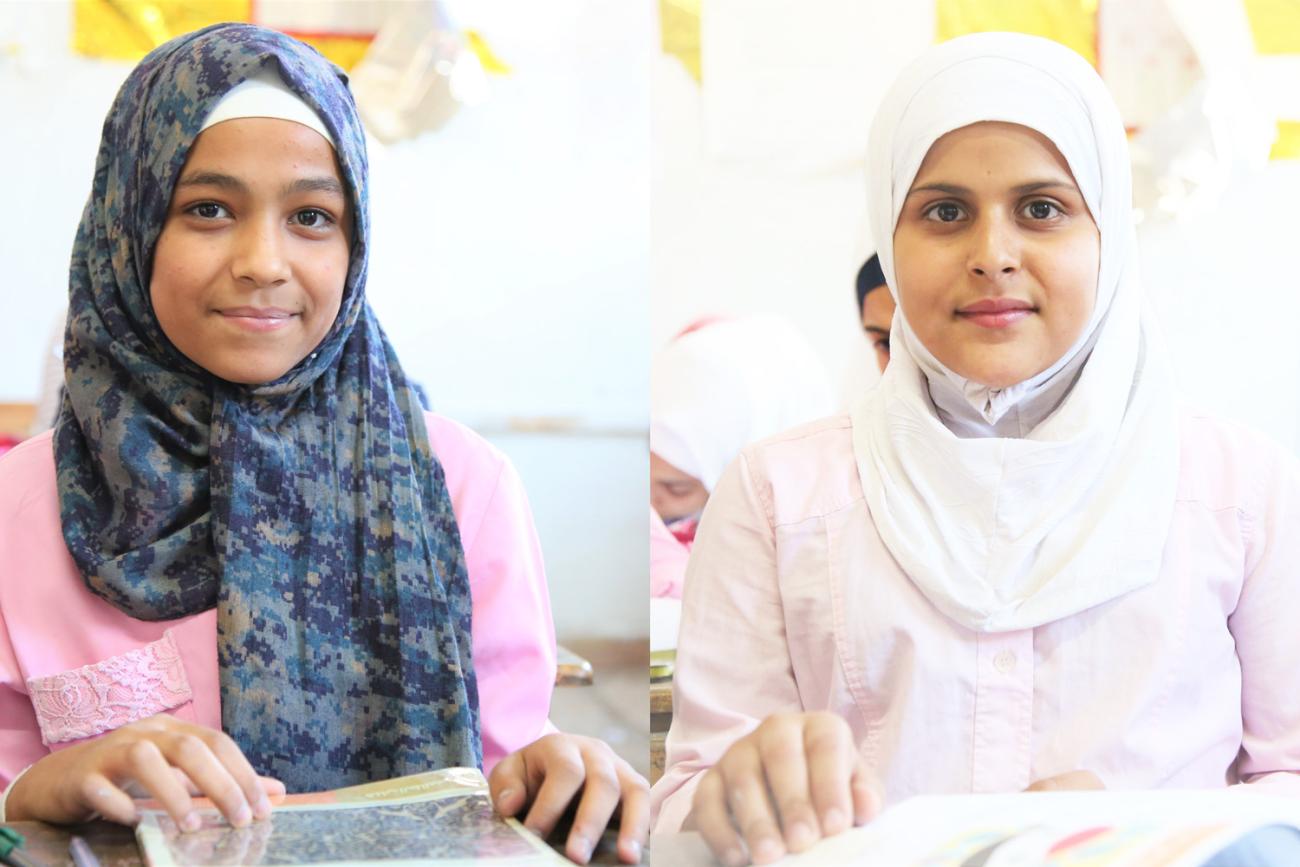Every day, seventh-graders Sondous and Zahra’a from Yarmouk walk past the debris of war to reach their school in nearby Yalda: devastated buildings, black and grey, with rooftops that are bent over, kissing the ground. The two girls are among thousands of Palestine refugee children in Syria who bear the scars of the Syrian war. Although cautious calm has replaced active war in Yarmouk, they feel unsafe when they leave the school in the afternoon, especially in winter when it gets dark early. “Walking from the school in Yalda to our homes in Yarmouk in the evening is scary, but what choice do we have? To reach our homes, we have to walk past destroyed and empty buildings in the camp. It looks like a ghost town and feels haunted,” says 14-year-old Zahra’a.
For children like Sondous and Zahra’a, the UNRWA al-Faloujeh alternative school in Yalda in south Damascus is a safe haven where they can learn new things and make friends. It helps them restore some normalcy in their lives and develop future goals. They say that they love their school. For them, it is a place to prepare for their future and for a better life. It is a place where they play, interact, and engage with their fellow students and teachers. “The teachers in our school are very supportive and kind. They really care for us and try their best to make the class enjoyable and fun. They teach us how to support each other, especially in the face of bullying. The school offers activities that help us heal from trauma, build friendships and acquire life skills,” says Sondous.
Before the crisis started in 2011, Yarmouk was a bustling home to almost 30 percent of the Palestine refugee population in Syria. Today, the weight of displacement, hardship and the loss of loved ones adds to the difficult living conditions in Yarmouk, despite the cleanliness and friendliness of their school, with its colorful arts creations in the courtyard. For Sondous, the devastation has become a nightmare that haunts her night and day. “It’s etched into my brain,” she says. “I dream of it. I can’t get over it. When we returned to our house in the camp last year, I was overwhelmed with so many different feelings. My heart beat faster as we approached our home. I was so happy to be back, to return to where I had spent my early childhood. I thought about my father and how he would no longer have to pay for our rented apartment. But the sight of the destruction stopped me in my tracks, I thought of all those whose houses were now that rubble I saw before me. Inside our house, all my toys were burnt except a small orange plastic fish,” she adds.
The two girls are trying to look ahead to a future where 14-year-old Zahra’a hopes to become a math teacher and Sondous a lawyer. “Education gives me hope. Learning makes me feel that I am back to life after a few years of being away from the classroom,” says Zahra’a.
As a result of hostilities, in 2013, UNRWA moved the al-Faloujeh school from Yarmouk to the neighbouring suburb of Yalda. Throughout the devastating years of the conflict, students remaining in Yarmouk would take the perilous journey to their school in Yalda in order to continue their education. Children now enjoy participating in psychosocial support activities that aim to create community cohesion and lessen the impact of recent traumas endured. Conducting these sessions for children whose lives have been upturned remains in the heart of the UNRWA education programme.







